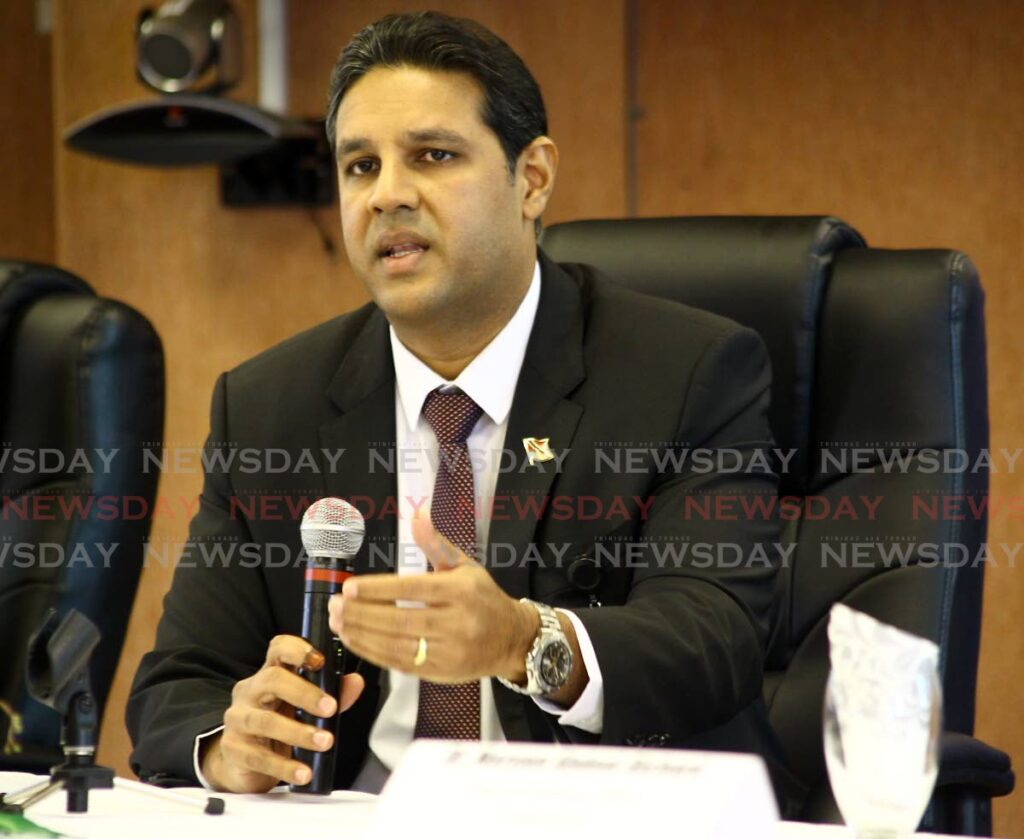Health Ministry on alert for monkeypox as Venezuela reports first case

AS more countries confirm the presence of the monkeypox disease, the Ministry of Health has begun the necessary preparations for if and when Trinidad and Tobago detects its first case.
World Health Organization (WHO) general director Tedros Ghebreyesus said the virus is behaving alarmingly unusual and the organisation is planning an emergency meeting to determine whether or not to declare monkeypox a Public Health Emergency of International Concern (PHEIC). A PHEIC is a declaration by WHO to initiate an international response. This declaration had been made six times, between 2009 and 2020 for Ebola, zika, swine flu, covid19 and polio.
Because the disease was detected in Venezuela last Sunday, Chief Medical Officer Dr Roshan Parasram said TT is already treating it as PHEIC. Parasram said the ministry is working to have all its physicians well trained on how to recognise and deal with monkeypox cases.
“So we have kind of pre-empted that decision and considered it a concern, especially now that you saw there's a case in Venezuela that has been confirmed, which is pretty close to us geographically.”
So far, monkeypox has been detected in 35 countries and has made its way into the region days ago. On June 5, Venezuelan health officials confirmed the first case of monkeypox in a traveller from Spain at the Simon Bolivar International Airport in Maiquetia.
At Wednesday’s press conference, Parasram said until WHO makes its declaration, TT will brace for impact.
“So we have taken the steps of treating it as a public health emergency of international concern before it is actually deemed that by WHO, just pre-emptively, because it's always better to prepare a little more than wait for that determination to be made, and then we have to prepare after the fact. So our preparation has begun quite a while ago.”
He said the ministry's aim was to have a strong response mechanism.
“We are ensuring our workers have the essential training to detect any unusual diseases and of course on how to take the necessary steps on isolation and to ensure that we have a very informed clinical cohort in the court.
“We are preparing them to diagnose by way of testing.”
He said samples collected can be sent to the US Centers for Disease Control and Prevention using the Caribbean Public Health Agency’s (CARPHA) existing method. He said CARPHA is still building TT’s in-country testing capabilities.
“When that happens we will alert the public on when that has occurred and I will alert the clinicians of the new measures and mechanism for testing.”
Vaccines for the disease will be acquired through the Pan American Health Organization. It can also be treated with an antiviral drug, Parasram added.
“We are working with the manufacture to see how we can source that (antiviral drug) as well.”
Joy St John, CARPHA’s executive director also urged all countries to be on alert. CARPHA’s website said monkeypox is identical to the virus that causes smallpox. Hence, vaccination against smallpox is effective against monkeypox.
Dr Karla Georges, director of the UWI School of Veterinary Medicine, encouraged all health-care professionals – doctors, veterinarians, nurses – and allied health-care professionals to be on high alert. In a release sent out by UWI on Wednesday she said, “Early detection of cases will assist in limiting the spread to the community.”
About monkeypox
Monkeypox is a rare disease that is caused by infection withthe monkeypox virus. It is transmitted from animal to human. This virus was initially discovered in a monkey in 1958.
The WHO said the disease is transferred through lesions, body fluids and respiratory droplets. Patients infected with the virus could be quarantined for between six and 21 days.
The disease can be severe in children, pregnant women and immunocompromised patients.
The most noticeable symptom is an unexplained acute rash —with an appearance like sores— across the body. Other symptoms include headache, fever, swollen lymph nodes, body and muscle pain, fatigue and back pain.
The WHO said patients have reportedly contracted the disease after sex, and particularly between men who have sex with men. The disease can be detected through PCR testing.
It said outbreaks of the disease have been reported in non-endemic countries. Approximately 1,600 cases, 1,500 suspected cases and 72 deaths have been reported since the beginning of 2022.
“Available information suggests that human-to-human transmission is occurring among people in close physical contact with cases who are symptomatic.”
The WHO is considering changing the name of the virus to minimise the stigma attached to it.

Comments
"Health Ministry on alert for monkeypox as Venezuela reports first case"